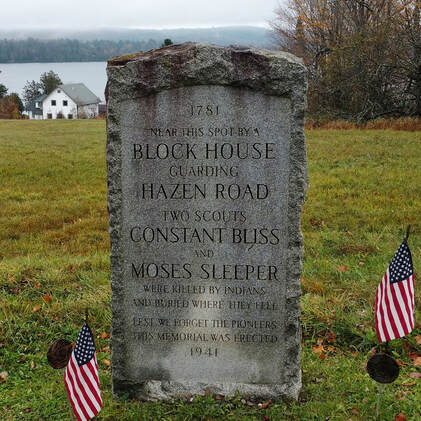Boomtownlinking past & present
Welcome to my passion project: writing about people, places, and ideas from the past that echo in the present. |
|
 Sometimes when I’m watching a genealogy show, like Finding Your Roots, I am reminded that most people know very little, if anything, about their family tree. I’ve researched mine for 20 years and have come to believe they live on in my DNA. Science has shown that the way our ancestors handled stress, for example, adds information to their DNA that is passed down to future generations. These people are literally part of me. Exploring them is a way to get to know myself. And god knows I’ve spent a lifetime trying to do that. We might find out our forebears lived through some stressful times. But finding out what effect that had on them is not so easy. The details of a person’s life start to disappear the minute they die. So you start with what you do know. You can learn a surprising amount in 10 minutes on a genealogy website. In one branch of my tree there are preachers and teachers. In another, healers and people good with their hands. And farmers. The farmers are all over the place. For most of history, work was just work. It wasn’t like Elias Van Steenburg woke up one day, rolled over and said to his wife, I love vegetables and cows. I think I’ll go into farming. Maybe he did love it; or maybe it was the only way he could keep food on the table. Knowing what work my ancestors did doesn’t tell me much about the kind of people they were. I have to know how they did things—how they loved, conducted business, dealt with the neighbors. Did they like being in charge or punching a time clock? Did they declare their principles or were they more ‘live and let live’? Did they have dreams and goals? What kept them up at night? What really pissed them off and what made them laugh? Does my family laugh the same way today? But we can only know so much, and sadly these details are almost always lost forever. So for instance, if my fourth great-grandfather Moses Sleeper fought for the resistance in the Revolutionary War, I know what side of history he ended up on. But I can’t know what drove that decision unless I understand what was going on in his community (or in his own head, if I strike gold). There are probably valid personal motivations in addition to the political ones we all learn in school. I can’t come to sweeping conclusions about my ancestors based on a few slim facts. Life is complex. And this is where genealogy gets dangerous. If I’m pleased that my ancestor was a patriot and not a loyalist, I can make all kinds of assumptions about his life to paint a rosy picture. I can ignore or simply fail to look for facts that don’t fit that picture. He was wealthy (but a real bastard to his tenants). She earned a Ph.D. (but spent three years in an institution). Lots of people do this about their ancestors. Very simple, one-dimensional snapshots. It probably makes them feel better about themselves. I feel the danger in that too. For me, the lure of family history is the dark stories—deals gone sour, prolonged mournings, mental breakdowns, that sort of thing. And yes, in a way they make me feel better about my life. They show that people have always struggled. Anything I’m going through, millions have been there before me and my pipsqueaky life. Knowing this nudges me to lighten up and make the most of this temporary blip of existence. Even if I don’t fully know them, they are with me, those ancestors. They’re never far. Maybe DNA has something to do with it. Think what you will about spirits or ghosts, but I'm convinced that what we see is not all there is. The more stories I uncover, the more connected I feel. And the better I feel in my own skin.
4 Comments
|
Details
AuthorThese are stories of people, places and events of the past that seem to jump out at me. Maybe they've been waiting for someone to tell them! Archives
July 2020
Categories |
 RSS Feed
RSS Feed